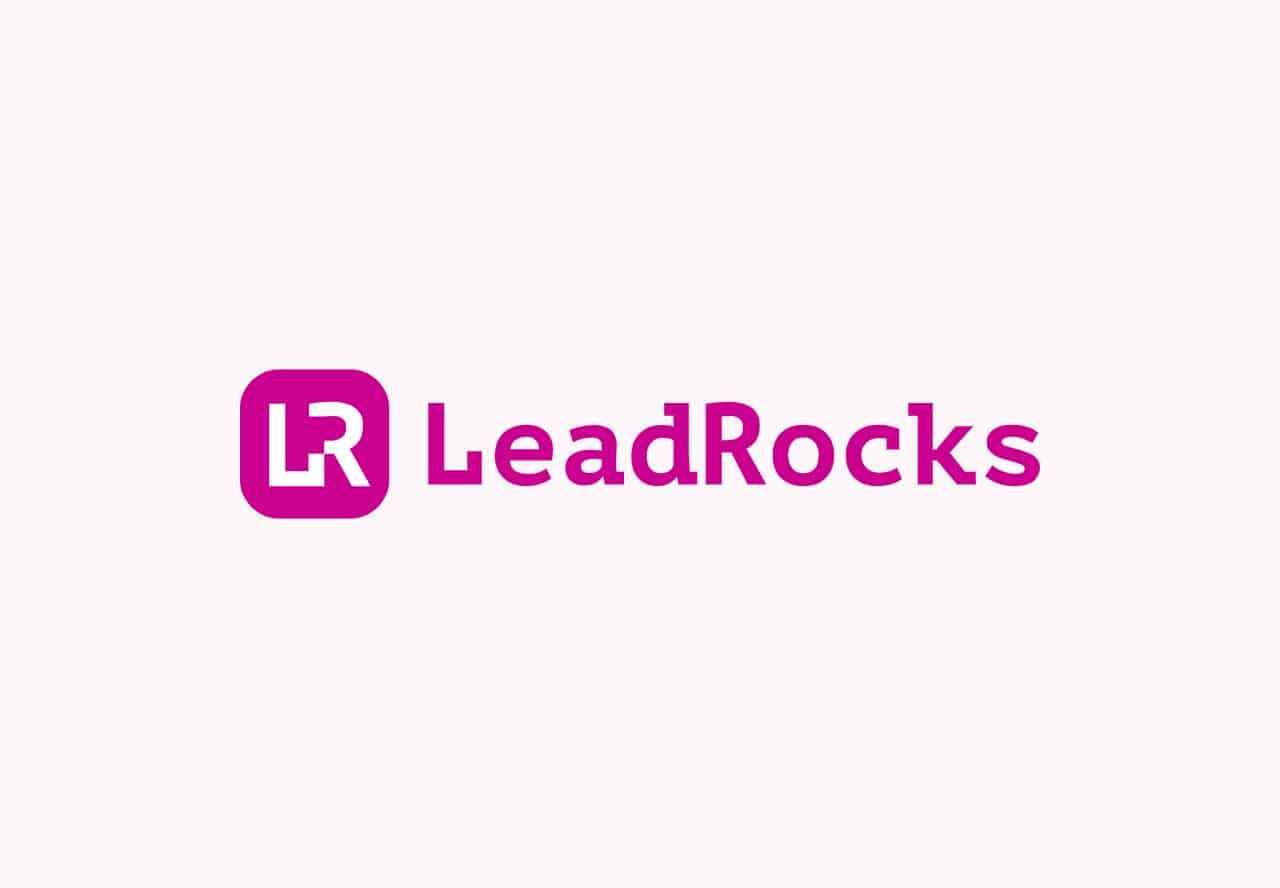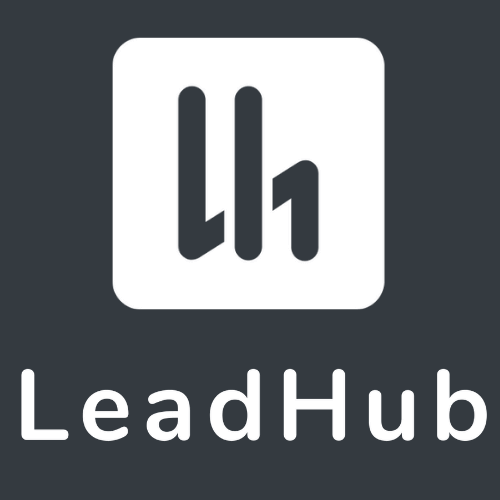Description

LeadRocks

LeadWare
Comprehensive Overview: LeadRocks vs LeadWare
LeadRocks Overview
a) Primary Functions and Target Markets
Primary Functions: LeadRocks is a lead generation platform designed to streamline the prospecting process for sales teams. Its key functions include:
- Contact Database: Providing access to a vast database of business contacts, complete with details like emails, phone numbers, and social media profiles.
- Data Enrichment: Enhancing existing contact information with up-to-date data to assist in more accurate targeting.
- Integration and Export: Easily integrating with CRM software to synchronize contacts and export data efficiently.
- Lead Scoring and Filtering: Offering tools to rank and filter leads based on specific criteria, which helps in prioritizing outreach efforts.
Target Markets: The primary market for LeadRocks includes small to medium-sized businesses (SMBs) and enterprises focused on B2B sales. Key sectors include technology, marketing, and sales industries where there is a high need for lead acquisition and customer data management.
LeadWare Overview
a) Primary Functions and Target Markets
Primary Functions: LeadWare is another lead generation tool, but it often places a heavier emphasis on automated outreach and artificial intelligence-driven insights. Its core functions are:
- Automated Outreach: Providing tools for automated email campaigns and follow-ups to enhance lead nurturing processes.
- AI-Driven Insights: Utilizing AI to analyze lead behavior and suggest the best approaches for engagement.
- Customizable Workflows: Allowing users to create flexible workflows to fit diverse sales strategies.
- Multi-Channel Approach: Enabling contact through various channels, including phone, email, and social media messaging.
Target Markets: LeadWare typically targets larger enterprises and sales agencies that require sophisticated automation features and analytics. Industries such as finance, healthcare, and e-commerce where complex sales cycles and high-touch customer relationship management are essential, often adopt LeadWare.
b) Comparison in Market Share and User Base
As of the latest available data (up to October 2023), the market share and user base details of LeadRocks and LeadWare were not explicitly published in widespread market analyses. However, based on typical industry insights:
- Market Share: LeadRocks typically appeals to smaller to medium enterprises due to its cost-effective pricing and straightforward approach, potentially leading to a higher volume of users in that segment. Conversely, LeadWare is likely more prevalent in larger organizations with more resources to invest in comprehensive lead generation strategies.
- User Base: LeadRocks may have a broader user base among start-ups and smaller firms due to its accessibility. LeadWare, with its advanced features, likely captures a more niche, experienced user base that prioritizes automation and data analysis.
c) Key Differentiating Factors
-
Ease of Use: LeadRocks often stands out for its user-friendly interface, catering to businesses that need quick and straightforward lead management solutions.
-
Functionality Depth: LeadWare offers deeper functionalities related to automation and AI, appealing to users who require detailed analytics and robust multi-channel outreach.
-
Pricing Models: LeadRocks tends to have more affordable entry-level pricing, making it suitable for smaller businesses or those with limited lead generation budgets. LeadWare, on the other hand, is often priced higher due to its advanced features and corporate focus.
-
Integration Capabilities: While both platforms offer CRM integrations, LeadWare might provide more extensive integration options with a wider range of business tools and platforms.
-
Customer Support and Training: LeadWare usually offers more comprehensive customer support services and training resources, given its complex feature set, whereas LeadRocks often emphasizes quick start-up and ease of implementation.
In summary, the choice between LeadRocks and LeadWare often depends on the scale of the business, the complexity of its sales cycles, and the specific features it prioritizes in a lead management solution.
Contact Info

Year founded :
Not Available
Not Available
Not Available
Not Available
Not Available

Year founded :
2011
Not Available
Not Available
Cameroon
http://www.linkedin.com/company/leadware
Feature Similarity Breakdown: LeadRocks, LeadWare
As of my last update, LeadRocks and LeadWare are tools generally used in the domain of sales and marketing, particularly focused on lead generation and management. Here is a generic feature similarity breakdown based on typical functionalities for such tools. However, bear in mind that product specifics can evolve, so it's always a good idea to check the latest data from their respective websites or support documents.
a) Core Features in Common
-
Lead Database: Both tools typically provide access to extensive databases of potential leads, including contact information and company profiles, which users can search and filter.
-
Search and Filtering Capabilities: These tools offer advanced search functionalities that allow users to filter leads based on various criteria such as industry, job title, location, company size, etc.
-
Lead Enrichment: They usually offer features to enrich lead data by providing additional information that can help in personalizing outreach efforts.
-
Integration with CRM: Both products likely integrate with popular CRM systems like Salesforce, HubSpot, or others, to enable seamless transfer of lead information and better manage customer relationships.
-
Export Options: They generally allow users to export leads data in various formats for use in other applications or campaigns.
-
User Analytics and Reporting: These platforms often provide users with analytics and reporting features to track the effectiveness of their lead generation and conversion efforts.
b) User Interface Comparison
While specific user interface (UI) details require direct observation, tools in this category generally focus on:
-
Simplicity and Usability: Both LeadRocks and LeadWare are likely designed with a user-friendly interface, prioritizing ease of navigation and efficient workflow management.
-
Dashboard Layout: Expect both tools to offer an intuitive dashboard that highlights key metrics and insights, allowing users to quickly grasp lead statistics and performance indicators.
-
Customization Options: The UI typically allows some degree of customization so users can tailor their experience to better fit their workflow needs.
c) Unique Features
LeadRocks
-
Real-Time Verification: LeadRocks may offer a feature for real-time verification of lead data to ensure accuracy and currency, minimizing bounce rates during outreach.
-
AI-powered Insights: It might use advanced AI algorithms to provide deeper insights into lead behaviors or predict lead quality/scoring.
-
Dedicated Support for Multi-Channel Outreach: LeadRocks could offer unique integrations or features that assist in coordinating leads across multiple communication channels like email, phone, LinkedIn, etc.
LeadWare
-
Automated Prospecting: LeadWare might differentiate itself with robust automation features for prospecting, allowing users to set up sequences that automatically reach out to leads in a pre-defined manner.
-
Custom Reporting Features: LeadWare could offer more granular reporting options, allowing users to generate highly customized reports based on specific KPIs or metrics.
-
Enhanced Personalization: There might be stronger capabilities for personalizing outreach messages directly from within the platform, using dynamic fields, and templates.
Lastly, for real-time and precise feature comparison, I recommend visiting the official websites of LeadRocks and LeadWare or using a reliable third-party software comparison platform, as this will provide the most accurate and up-to-date information.
Features

Not Available

Not Available
Best Fit Use Cases: LeadRocks, LeadWare
LeadRocks and LeadWare are both tools designed to assist with lead generation and sales prospecting, but they have distinct features and are suitable for different use cases. Here's a detailed breakdown:
LeadRocks
LeadRocks is typically best suited for businesses or projects that require:
a) B2B Outreach:
- Type of Businesses: Small to medium-sized enterprises (SMEs) looking to expand their client base.
- Industries: Marketing agencies, SaaS companies, and recruitment firms that need to identify and connect with decision-makers.
- Projects: Initiatives focused on expanding into new markets or verticals where initial contact with potential clients is crucial.
b) User-friendly Interface and Automation Needs:
- Businesses that require a straightforward tool with easy navigation and the ability to automate the prospecting process.
- Companies that need efficient ways to enrich and verify contact data for email marketing efforts.
c) Startup and Growth Phase Companies:
- Businesses in the early stages, keen on creating a strong lead pipeline without heavy investments in large-scale CRM solutions.
LeadWare
LeadWare is typically favored in scenarios involving:
a) Comprehensive Lead Management:
- Type of Businesses: Larger enterprises or businesses with complex sales cycles needing a more advanced technological stack for lead nurturing and conversion.
- Industries: Financial services, healthcare, and technology firms that require detailed analytics and insights into the entire sales funnel.
- Projects: Long-term campaigns where rigorous lead scoring and tracking are paramount.
b) Advanced Analytics and AI Features:
- Companies focused on leveraging artificial intelligence to predict sales trends and optimize conversion rates.
- Businesses that have dedicated sales teams responsible for in-depth lead qualification and engagement.
c) Multi-departmental Coordination:
- Enterprises that require tools capable of integrating with their existing CRM systems and facilitating seamless communication across sales, marketing, and customer service departments.
Catering to Industry Verticals and Company Sizes:
-
LeadRocks is ideal for smaller companies or startups where streamlined processes and cost-effective solutions are vital. Its feature set typically involves essential tools that are quick to learn and implement, making it perfect for industries with limited resources or less technical workforce.
-
LeadWare provides more robust solutions suited for larger organizations with diverse and sophisticated needs. Its ability to handle bigger data loads and offer predictive insights makes it a strong choice for industries requiring comprehensive lead management strategies, such as enterprise-level tech firms or multinational corporations.
Both tools offer unique benefits, but the key differences lie in their ability to address the specific demands of either simplicity and speed or advanced analytics and integration capabilities, catering effectively to different business needs across various sectors.
Pricing

Pricing Not Available

Pricing Not Available
Metrics History
Metrics History
Comparing teamSize across companies
Conclusion & Final Verdict: LeadRocks vs LeadWare
When comparing LeadRocks and LeadWare, it’s important to consider factors such as features, pricing, ease of use, customer support, and scalability to determine which product offers the best overall value.
Conclusion and Final Verdict:
a) Best Overall Value
LeadRocks generally offers the best overall value for users seeking a straightforward and cost-effective lead generation solution. It tends to provide a simpler, more user-friendly experience with competitive pricing and basic yet essential features that cater to small and medium-sized businesses just beginning their lead generation journey.
LeadWare, on the other hand, often caters to more complex needs with additional features that may be beneficial for larger enterprises requiring sophisticated tools for comprehensive lead management.
b) Pros and Cons
LeadRocks
-
Pros:
- Cost-Effective: Typically offers competitive pricing, making it accessible for smaller budgets.
- User-Friendly: Known for a straightforward interface that is easy for beginners to navigate.
- Focused Features: Offers essential lead generation tools without overwhelming the user with too many options.
-
Cons:
- Limited Advanced Features: May lack some advanced functionalities that larger enterprises or tech-savvy users might require.
- Scalability Constraints: Might face challenges in scalability for rapidly growing businesses with complex needs.
LeadWare
-
Pros:
- Comprehensive Feature Set: Equipped with advanced features and integrations for a more all-in-one solution.
- Scalable: Better suited for enterprises with the demand to manage large volumes of leads and data integration.
- Customizable Solutions: Offers customization options for businesses with specific needs.
-
Cons:
- Higher Cost: Generally offers higher pricing, which might not be suitable for smaller businesses.
- Learning Curve: The complex feature set may require a steeper learning curve, demanding more time and training.
c) Recommendations
-
For Small to Medium Businesses and Startups: Opt for LeadRocks if you prioritize cost and ease of use over extensive features. It is ideal for teams that are new to lead generation and seek a straightforward tool without hefty investments.
-
For Large Enterprises and Advanced Users: Consider LeadWare if you require advanced functionalities, extensive integrations, and the ability to handle large datasets. The extra cost can be justified by the value offered through enhanced features and scalability.
-
Trial and Feedback: Utilize free trials or demo options that both platforms may offer to better understand which aligns with your specific business needs. Engage with customer support teams to address any questions or concerns that arise during the trial period.
Ultimately, the decision between LeadRocks and LeadWare should be driven by the unique needs of your organization, budget constraints, and the level of complexity you are ready to manage.
Add to compare
Add similar companies




